Dear friends,
I’m pleased to share another installment of the occasional series I do, in which I invite an author to tell us five things—not only about their most recent book, but about their life too.
I met Nana-Ama Danquah at the AWP conference in Denver in 2010, when a I joined her and several other memoirists for lunch. I adored and admired her immediately—feelings which only deepened when, soon afterwards, I read her beautiful and trailblazing memoir, Willow Weep For Me, about her long battle with depression. First published in 1998, the book was reissued last year in honor of its 25th anniversary, with a new foreword by Andrew Solomon and an afterword by Nana-Ama.
When I read it again recently, I was again rocked by just how good it is—how honestly and bravely and rivetingly Nana-Ama explores the many layers of her experiences with depression—as a Black woman, an immigrant, and a single mother who often lived in poverty—as well as the ways that racism, classism, and sexism on a broader scale contribute to the suffering of those who struggle with mental illness. In her afterword in the new edition of the book, Nana-Ama writes that the biggest struggle of her life has been silence. And yet, in her masterful memoir, she came out the winner of that struggle, telling a groundbreaking and powerful story that has been an inspiration and a balm to many for decades and remains one we need to hear today.
I’m delighted and honored to share her wisdom and words with you in this interview.
xCheryl
Tell us about a time when you took advice that turned out to be really good or really bad.
There are two instances that immediately come to mind.
#1. For the brief time that I attended undergrad, I was a Business major. My course schedule was mind-numbing. I’d have rather spent my days watching paint dry. I had zero interest in business but, like so many other young adults, I was dutifully fulfilling someone else’s desires for my life. In my Business Law class, we were studying Lucy v. Zehmer, a contract law case about two friends who got together to share a bottle of whiskey. By the end of that fateful night, one of the friends, totally sloshed and believing it was all in good fun, had signed over his farm for a fraction of its worth on the back of a paper napkin. The class discussion was meant to be about intent, duress, what determines whether someone is fit to enter a contract, etc. I kept asking questions about the aftermath of the situation: Did the men ever repair their broken friendship? How did the wives, who were also friends, navigate the dispute?
“Ms. Danquah,” the professor said after several such questions, “this is not a literature or creative writing course. If that’s where your interests lie, I suggest you consider registering in one of them.” I felt shamed and humiliated. I grabbed my stuff and left the classroom, and the college campus—and never returned. I dropped out. While I don’t think my professor meant what he said as advice, hearing those words in that particular setting made me realize that I would rather invest all that I had into trying—and possibly failing—to do the thing that I loved than to devote four years of my life to studying the thing that I didn’t even like, just to have a solid fallback plan (in case I failed at the thing I wasn’t even making an effort to do).
#2. After I got my first book deal, one of my mentors, E. Ethelbert Miller, advised me to return to school and get a degree. He told me that every now and then in life we are given the opportunity to “change influence into power,” and that I should always take such an opportunity. Power, he explained, is choice. It’s the choice to work the sort of jobs to which I was relegated because I didn’t have a degree, or the choice to take advantage of all the privileges a college degree can offer. I was able, with my past bylines and the book contract, to substitute life experience for a Bachelor degree, so I attended a graduate program and received my MFA in Creative Writing and Literature.
That advice has served me well many times over. Understanding the difference between influence and power, and then making intentional choices to solidify your power can be extremely liberating, certainly life-changing. Alice Walker is famously quoted as saying, “The most common way that people give up their power is by thinking they don’t have any.” Whenever I hear or read that quote, I think of my own life and all the ways in which I have benefited from knowing I had power and standing firmly in it.
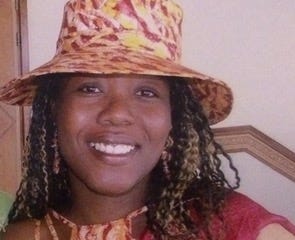

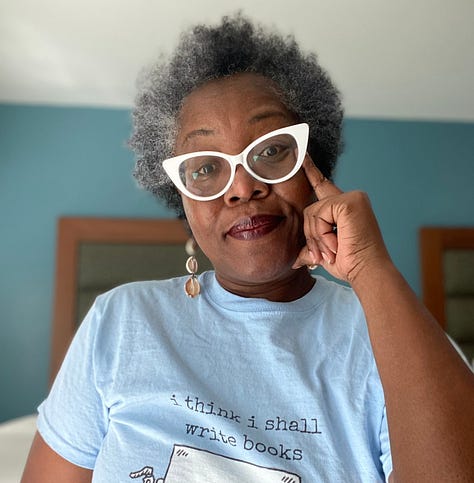
Tell us about a personal transformation in your life or a change that you’ve made for the better.
Nearly four decades later, I have had to decide, once again, to face the fear of choosing a writing career because I could no longer deal with the alternative. Though I’ve always written, and been fortunate enough to be able to publish my work, there came a point in my life where I decided to put my career on the back burner and earn my income as a ghostwriter and political speechwriter. In my young adulthood, I had nothing. It was easy to take a leap of faith because I had so little to lose. My biggest obstacle was the judgment of others. And I am in no way trying to minimize how debilitating that can be; quite the opposite. I typed quickly and accurately and had a pleasant, professional telephone voice, so I could always find temp work (which was far better than a permanent position because you’re just a warm body to fill in until the real employee returns from an illness or maternity leave. You’re never entrusted with any real work, so you’ve got a lot of idle time, a computer with the latest software, reams and reams of paper, and a fast printer with lots of ink: a writer’s dream!).
As I got older, my life changed. Instead of only focusing on what I needed to get by, I allowed myself to also indulge my wants, especially after I became a mother. I wanted to live in a nicer and bigger apartment in a safer neighborhood. I wanted to have a diet that was more diverse than tuna, rice, and instant ramen. I wanted furniture in my home that hadn’t previously been abandoned in an alleyway or donated to a charity. I wanted to travel, and be able to pay for my daughter’s education and extracurricular activities. My writing, unfortunately, was not bringing in the kind of money that I needed to sustain that lifestyle, so I started writing for other people. I became a ghost.
Once my daughter was out of school and fully on her own, I re-evaluated my life. I had gotten my first book deal in my late 20s and my memoir was published when I turned 31. I was now in my 50s. We live in such a youth-oriented society. A fair number of awards and other accolades are geared toward young writers, usually those under the age of 40. I couldn’t even apply for grants and fellowships because I had no recent publications to speak of. My peers, several of whom were now famous authors, had all published numerous books. I’d been every bit as prolific as they had, but I’d been writing bestsellers for which I would never get credit, and receiving great reviews that I could never cite in my bio. I felt washed up, like flotsam, and starting all over again seemed almost impossible. Where would I even begin? It was as though I had no real purpose or direction in my life. I became depressed and suicidal.
Then slowly, slowly, I remembered the girl I once was and how words, the ones she read and the ones she wrote, had saved her life. I remembered the young woman who walked out of that Business Law class and became determined to “make it” as a writer. The only thing that mattered, I realized, was writing. I started publishing articles and essays again. I scaled back my wants and focused more on my needs, letting go of all the things that were not truly necessary. I said no to all client work, turning down six-figure contracts and instead writing projects that brought in three-figure payments. The art of reinventing oneself is definitely scary, but it is also incredibly satisfying. I feel a sense of freedom and urgency I have not felt in decades.
Tell us about Willow Weep for Me: A Black Woman’s Journey Through Depression.
It’s the 25th anniversary re-issue of my memoir, the one that came out when I was 31. I remember writing every single word of that book, but what I cannot remember is the fearlessness I had back then that is so evident to me now. Zora Neal Hurston once said, “If you’re silent about your pain, they’ll kill you and say you enjoyed it.” I wrote Willow Weep for Me from a place of defiance, telling everything that I knew I was not supposed to tell, fighting back against a stigma that had all but beaten me into submission. The book was one of the first, if not the first, personal narratives of depression written and published by a Black woman. While I was writing the book, there was a note taped to my computer, a message from me to me, that said, “Remember that there is a difference between privacy and secrecy.” I was uncertain about whether I would win my battle with depression, and it was important for me to speak out about what I was going through and why.
I’m often asked whether, insofar as mental health awareness and treatment, much has changed in the 25 years since the book was first published. Back then, mental illness was barely even acknowledged publicly. These days you’ll read and hear the words depression, anxiety, bipolar, and mental health pretty much everywhere. Still, we only seem to be willing to skim the surface. There is rarely any meaningful dialogue, and if you attempt to address the issue of mental illness beyond platitudes and ambiguities, you are ignored or immediately shut down. Whenever someone in the public eye dies by suicide, for the next several days social media sites are flooded with posts instructing followers to “check on your friends, especially the strong ones.” It is highly unlikely that anyone who is battling a depression so severe that it has moved them past suicidal ideation into the actual formation of a plan would share their deepest, darkest thoughts with a friend who has just randomly called to check on them. People with physical ailments don’t casually reveal their struggles to friends who are not in their inner circle, and the fact that we expect someone with a mental illness to do so speaks volumes. There is so much more work to be done to bring about meaningful awareness and compassion. That my book has been given a second life to be able to help with that work is a real honor.
The decision to reissue Willow Weep for Me came at a time when I was reclaiming myself as a writer, reclaiming a career that had been interrupted shortly after the original publication of the memoir. For a few years, I sincerely believed that the choices I’d made had caused me to miss my moment, so to speak; I believed that I could never be the writer I’d once dreamed of becoming. I’d already arrived at the conclusion before the book was republished that this was a myth I could continue to tell myself, or I could just as easily choose to take a leap of faith. Each time I see this new edition, I smile because it’s a reminder that the last time I made such a major leap of faith, I grew wings and took flight.
Tell us about a regret you have or a mistake you’ve made.
The only things I allow myself to feel regret about are past food, clothing, and hair choices. Everything else, I think of as part of my path, my journey. All the steps we’ve taken have led us to where we are. For some reason, in this culture, we always want to win, be right, comfortable, and happy. There is, however, tremendous value in losing, in being wrong, uncomfortable, and unhappy. We learn a great deal about ourselves and, if we’re lucky, use it to grow and become stronger, wiser, more resilient and confident. I sincerely believe that.
Tell us your best advice.
Go with the flow.
I know, it sounds like some sort of hippie motto, but it’s a lesson I learned from my swimming instructor. I learned to swim in my late thirties. Before that, I had a totally irrational fear of water, and I figured that since I was never going to jump into a swimming pool or walk into the ocean, I didn’t have to know how to swim. Actually, it was after Hurricane Katrina that I realized how wrong I was and decided to learn as quickly as I could. I was living in Ghana, my native country, at the time. I signed up for a private class. The instructor guaranteed that by the end of the 10th session, I’d know how to swim. I was skeptical, but he seemed sure of himself and his technique. Much to his dismay, he spent the first two sessions coaxing me into putting my head underwater. By the sixth session I was swimming, unsteadily but successfully, from one end of the shallow end to the other. The instructor kept trying to get me to go into the deep end; I kept refusing. If my feet couldn’t touch the bottom of the pool while my head was above water, I went into full panic mode.
During our eighth or ninth session, we were standing near the deep end of the pool chatting when suddenly he pushed me into the water. I was mortified. My heart was racing. I was kicking and flailing my arms. The instructor went in immediately after me. I wasn’t in the water for more than 20 seconds. Even after he’d grabbed me and started swimming to the surface, I was kicking and fighting.
“Don’t fight the water,” he told me. “You will never win. You have to learn to go with the flow. Now, let’s try this again.” I refused, but he insisted. “I’m going to push you in again. This time, don’t fight. Let the water take the lead.” I braced myself, and he pushed me in. I controlled my urge to move and flail and, much to my surprise, the water brought me back up and I was able to swim to the surface.
“Always remember that if you’re working too hard,” he said. “You’re going against the current. Just stop, relax, and go with the flow. Let the water take the lead.”
When it comes to being in dangerous waters, I don’t know if this advice actually works because I’ve never had to test it out. What I do know is that when it comes to life, they’re the words I share with friends going through challenging situations, because they are my go-to. Whenever I am harried or stressed out, I hear my swim instructor’s voice telling me: “Just stop, relax, and go with the flow,” and I always know that I’ll come out okay. I’ll rise.
Nana-Ama Danquah is an author, editor, freelance journalist, ghostwriter, public speaker, actress, and teacher. Her groundbreaking memoir, Willow Weep for Me: A Black Woman’s Journey Through Depression (W.W. Norton & Co.) originally published in 1998 then re-released in 2023 as a special 25th anniversary edition, was hailed by The Washington Post as “A vividly textured flower of a memoir, one of the finest to come along in years.” A native of Ghana, Nana-Ama is the editor of four anthologies: Becoming American: Personal Essays by First Generation Immigrant Women (Hyperion); Shaking the Tree: New Fiction and Memoir by Black Women (W.W. Norton & Co.); The Black Body (Seven Stories Press); and, Accra Noir (Akashic), as part of their popular noir series. Nana-Ama earned a Master of Fine Arts degree in Creative Writing, with an emphasis in creative nonfiction, from Bennington College. She has published articles in newspapers, journals, and magazines, such as the Africa Report, the Village Voice, the Los Angeles Times, Allure and Essence. She is based in Southern California.




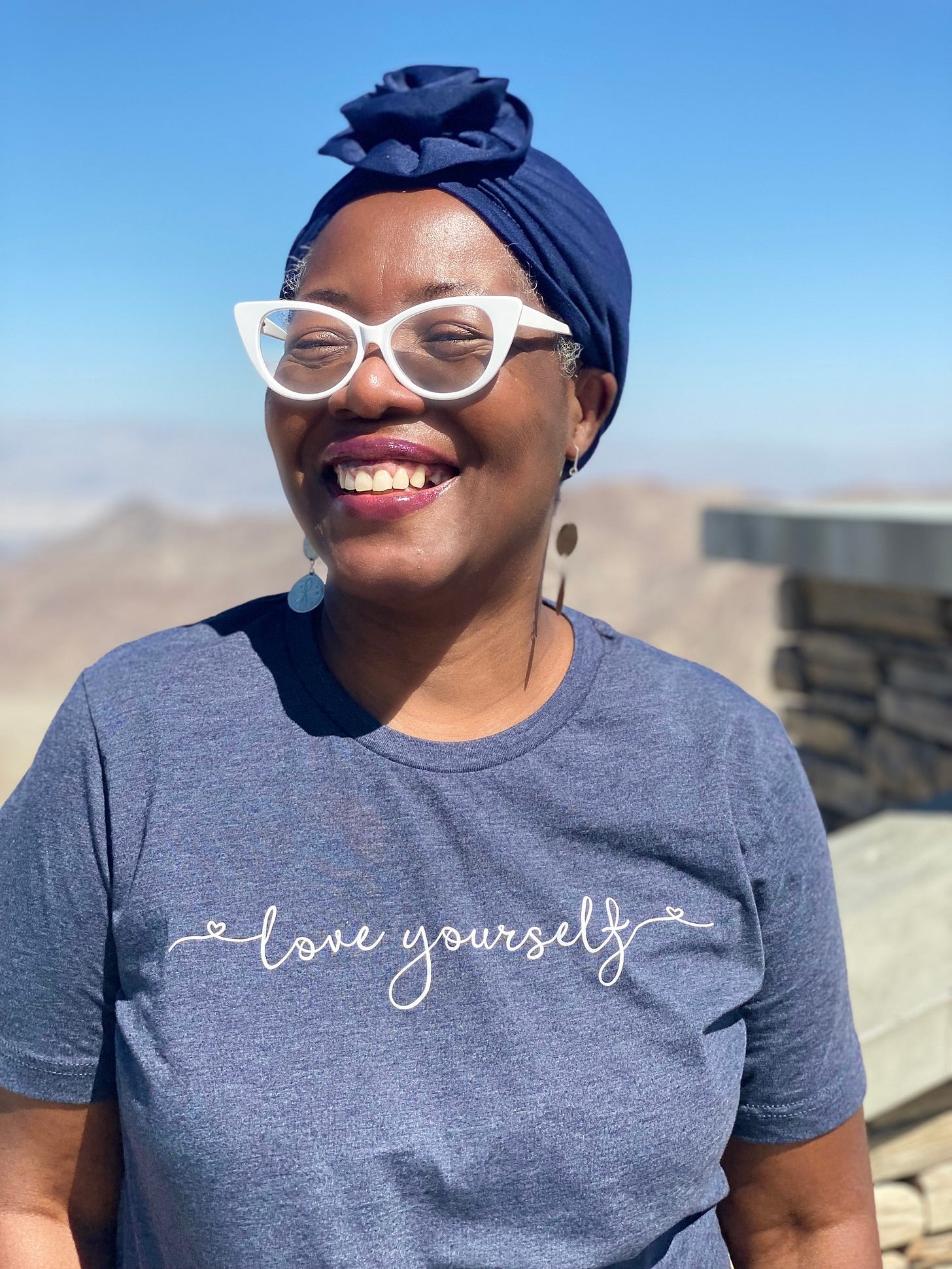
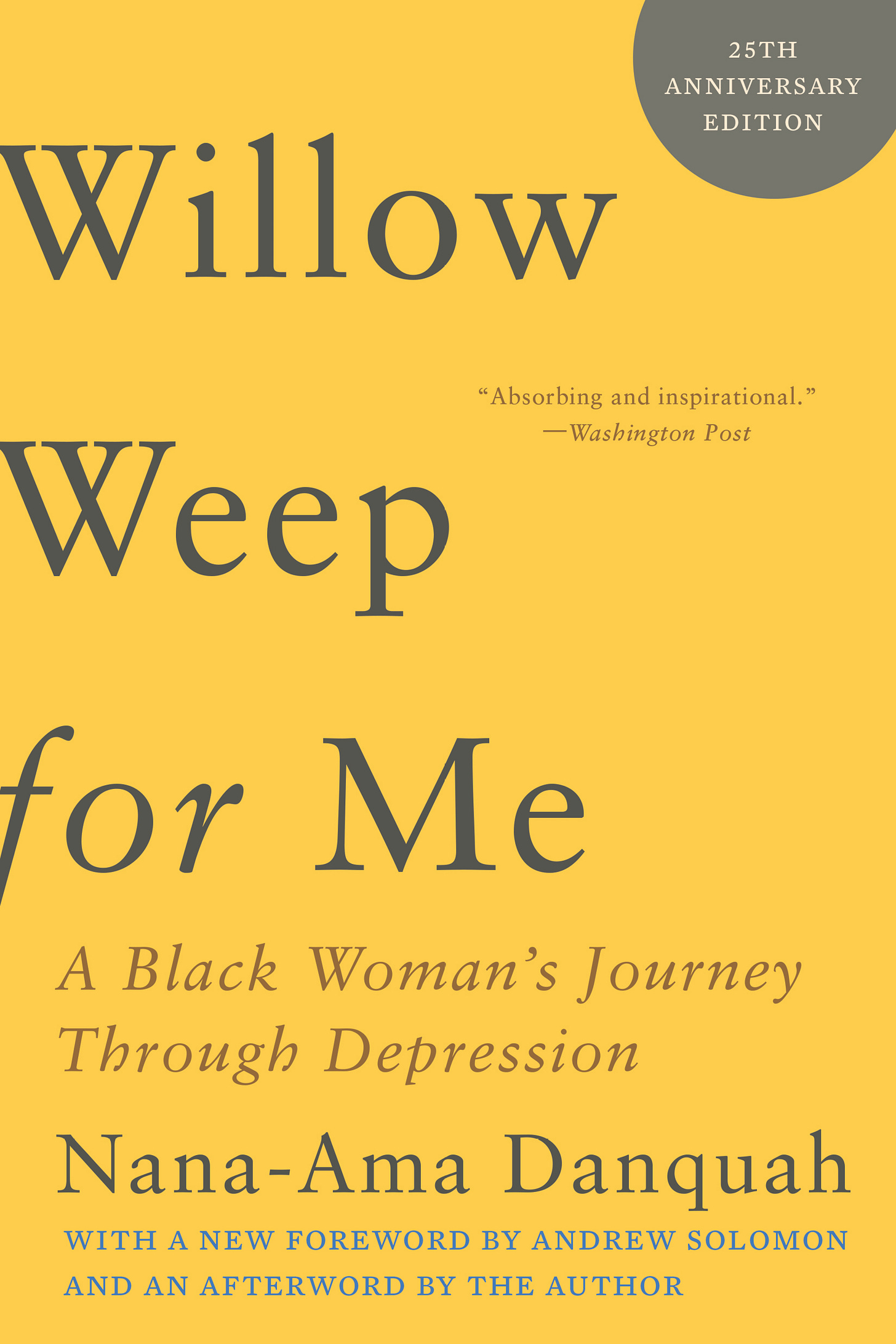
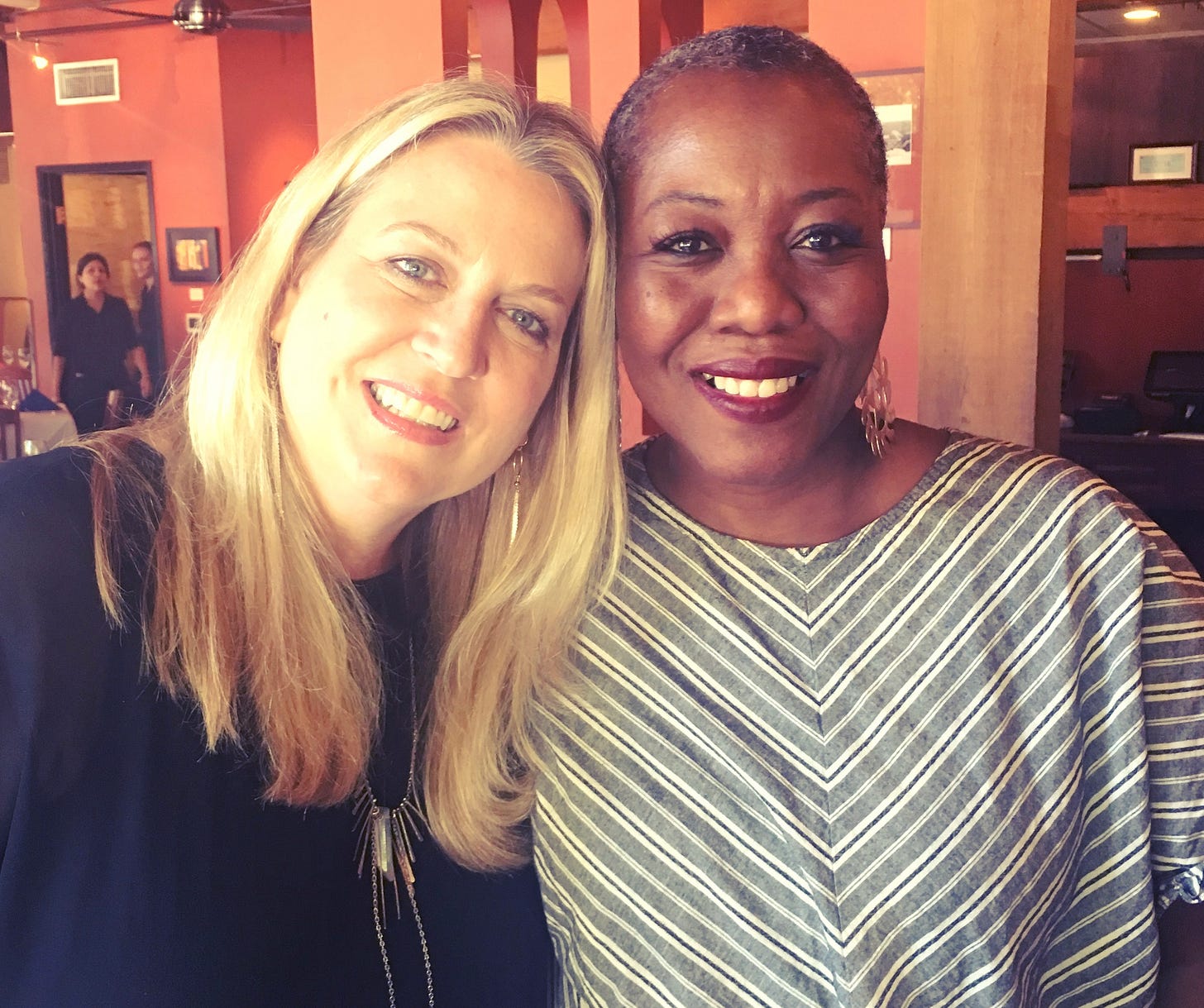
So inspired...especially in my 50’s now; and all I ever wanted to be, was a writer. This was in my inbox today as I’ve been working all year on a memoir and feeling like giving up. Thank you!!
Loved reading this, Cheryl! And inspired by Nana-Ama’s story. Remembering to “go with the flow” is a perfect reminder.